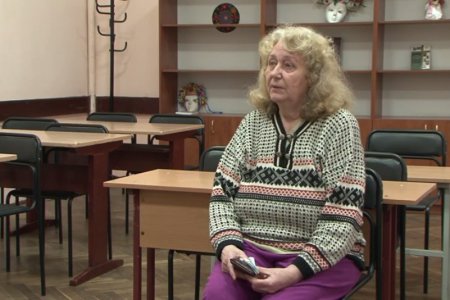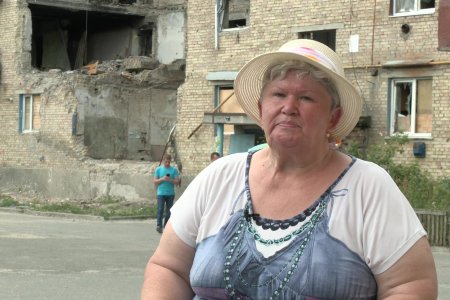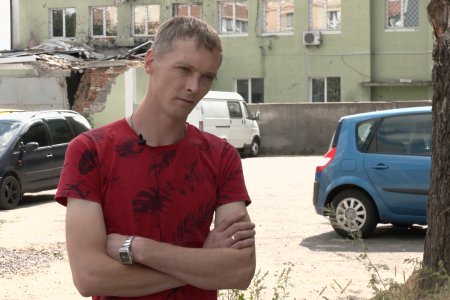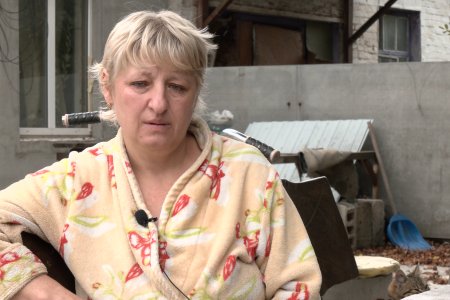My husband and I live together, and our children live in Kyiv. We lived in peace, did repairs, cared for the gardens, did housekeeping... We didn’t even think that such a disaster would befall us.
It all started on 24 February. I watched TV and embroidered a picture. I had a lot of embroideries. I did it until three or four in the morning. And then they said on TV — war! I told my husband: “Get up! The war has begun!” But he didn’t believe it. It was Thursday, and our village had a market on this day. We went to the market, and people there also said that the war had begun. We looked, and there was a glow in the distance! Then Vasylkiv was bombed. Hysteria began, and people began to buy everything they could. The Russians entered the village, I think, on 27 February. I left on the 26th, and they came in on the 27th.
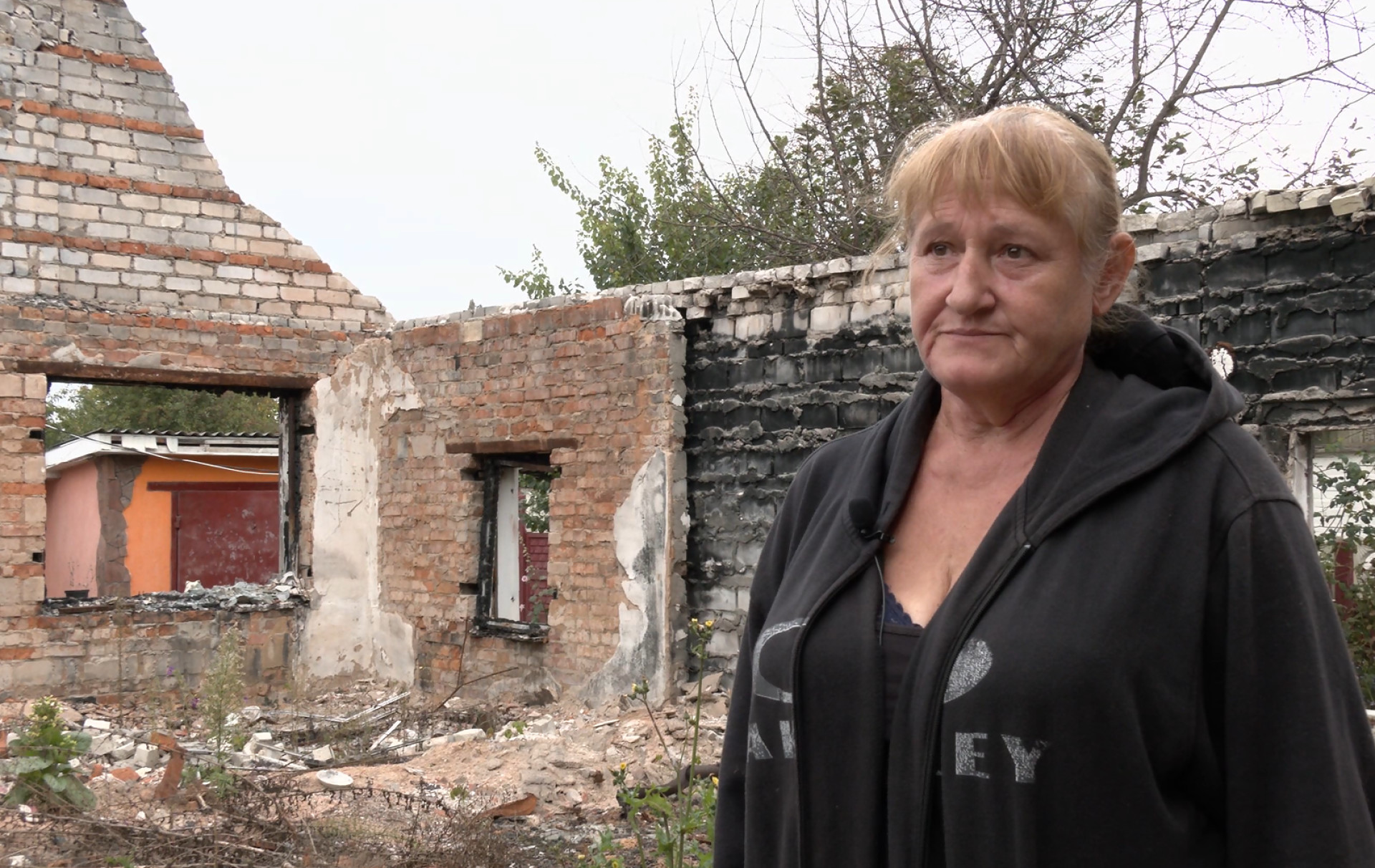
My relatives had to leave the Zhytomyr region because their children are small, but my mother is 92 years old, so I went to her. My husband stayed here. Thank God there was a connection. I constantly called him on the phone, and he told me that many tanks had arrived. We had a video camera, and it recorded everything. They drove into the village, and when they left, they [the Russians] fired heavily. They shot so hard that everyone hid.
Then, in March, a bomb was dropped here. My husband said that our house was badly damaged. The windows on one side were blown out. I said: “It’s nothing, it’s not scary.” We talked to him every day but for a few minutes because there was no light or gas. Then, on 28 March, at 1:58 pm, he called me and said: “We have become homeless.” — “How?” — “We became homeless.” He said he was in the summer kitchen, heating the stove, and suddenly, he heard a powerful explosion. Grad missiles flew by, destroyed part of the kitchen, and went straight into the house.
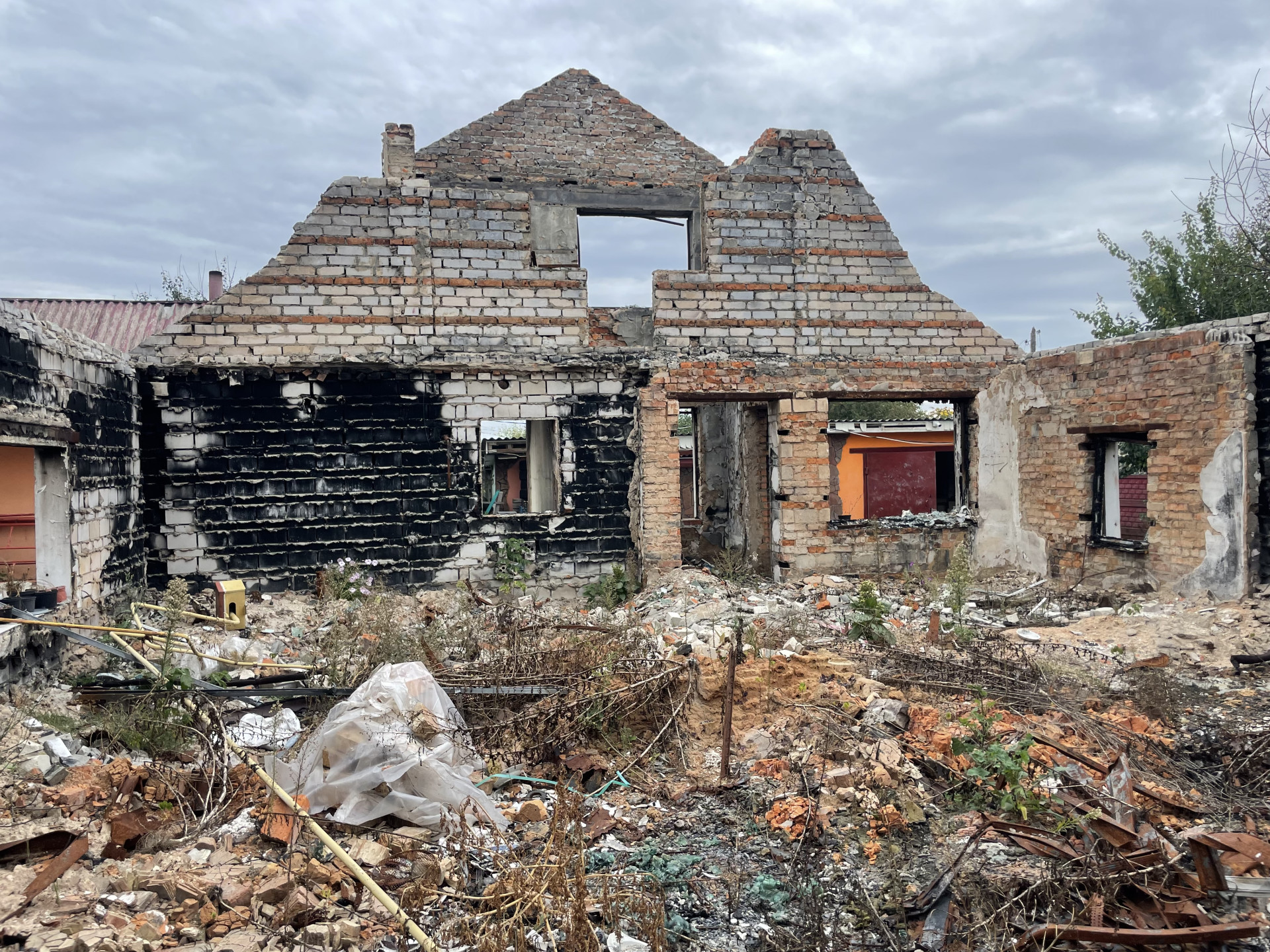
One Grad flew to the first floor and the second to the second. Everything started to smoke and burn. The husband said everything immediately flared up, and it was impossible to run into the house. The wind was strong, the electrical substation caught fire, and our fence caught fire on the other side. Everything caught fire, and he [the husband] was alone. We had a car in the garage, and he filled buckets with water and poured it on it so the garage wouldn’t catch fire. And that’s it, we were left with nothing. And already on 3 March, our army arrived, and I returned. Since then, we have lived like this.
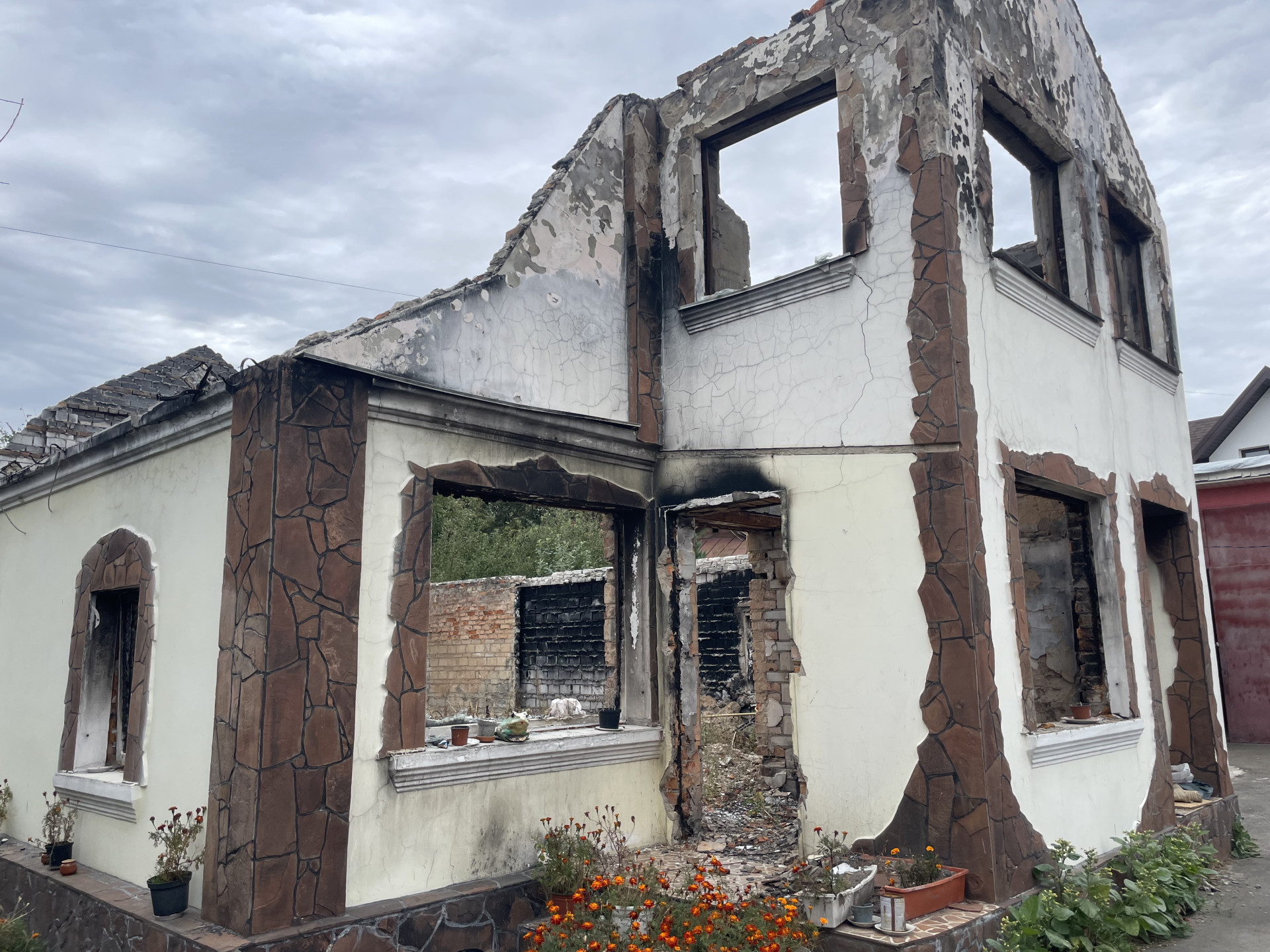
It hurts, it hurts a lot. What should I wish for them? Only hell! Don’t they understand that life is not eternal on earth? Sooner or later, it doesn’t matter whether they or their children... They will pay for it! For the harm they caused. The house is nothing, but my nephew was 37 years old! We won’t get him back. Verhun Serhii Viktorovych was born in 1985, my brother’s son, my nephew. He was killed! His parents left, and at first, he and Roma lived with us. They came, and my husband cooked food even though there was no gas; he and Roma always came.
And then, one day, they disappeared. I don’t know where they went. And then, when we returned to the village, people came and said that Serhii was lying at a place along the highway, covered with foam plastic. They identified him by his leg. Everything was disfigured. They said they shot him in the left side of his head and then covered him with foam plastic. The guy was buried in a closed coffin. There was nothing to look at.
